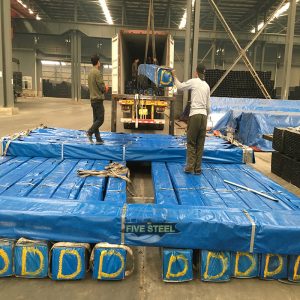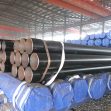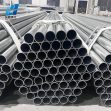Greater pressure of fundamental supply and demand
The steel industry, a vital component of global economic development, is facing significant supply and demand pressures. As the backbone of construction, manufacturing, and infrastructure projects, steel plays a crucial role in driving economic growth and progress. However, recent shifts in the market have intensified the fundamental challenges faced by the steel industry. One of the primary factors contributing to the increased supply and demand pressure of welded steel pipe is the rapid urbanization and industrialization occurring in emerging economies. Countries such as China, India, and Brazil are experiencing robust economic growth, resulting in a surge in construction and infrastructure projects. This heightened demand for steel puts immense pressure on the industry to supply sufficient quantities to meet the needs of these expanding economies.

Furthermore, there has been a rise in protectionist measures and trade tensions among major steel-producing nations. Tariffs, quotas, and anti-dumping duties implemented by governments to safeguard their domestic steel industries have disrupted the global steel trade. These protectionist measures have led to market imbalances and distortions in supply and demand dynamics. Environmental regulations and sustainability concerns have also impacted the steel industry’s supply chain. Stricter emission standards and the push for greener practices have forced steel pipe manufacturers to invest in cleaner technologies and adopt more sustainable production processes. While these initiatives are commendable, they often come with higher costs and potential supply chain disruptions, further exacerbating the challenges faced by the industry.
Moreover, the COVID-19 pandemic has created unprecedented disruptions in the global steel market. Lockdown measures and supply chain disruptions have impacted steel production, resulting in reduced supply of round steel pipe. Simultaneously, the pandemic has caused a downturn in certain sectors, such as automotive and construction, leading to decreased demand for steel products. These volatile market conditions have intensified the supply and demand pressures on the industry. Addressing the fundamental supply and demand pressure in the steel industry requires a multi-faceted approach. Firstly, governments and regulatory bodies need to promote fair trade practices and reduce protectionist measures that hinder the free flow of steel across borders. Encouraging open and transparent trade will help stabilize the market and ease supply constraints.
Secondly, industry stakeholders must invest in research and development to develop innovative and sustainable steel manufacturing processes. Embracing technological advancements and adopting greener practices will not only enhance environmental sustainability but also improve efficiency and reduce costs of rectangular hollow section in the long run. Furthermore, collaboration between governments, industry players, and research institutions is crucial for developing strategies to manage supply chain disruptions effectively. This includes diversifying sources of raw materials, developing resilient logistics networks, and implementing contingency plans to mitigate future disruptions.
Tel: +86 18202256900 Email: steel@fwssteel.com










